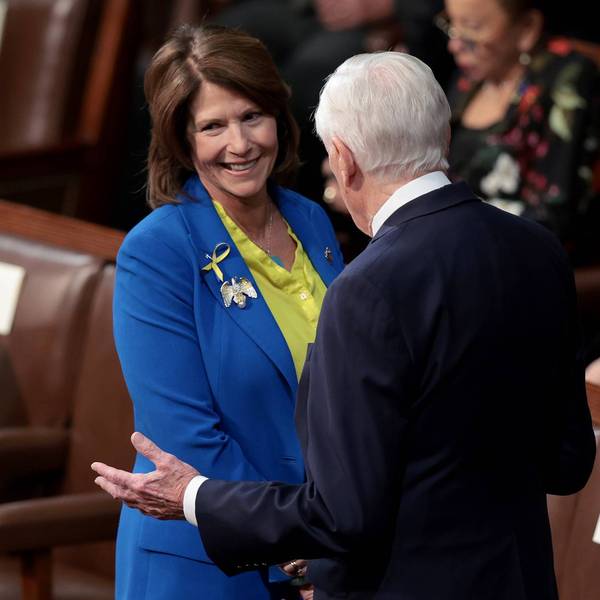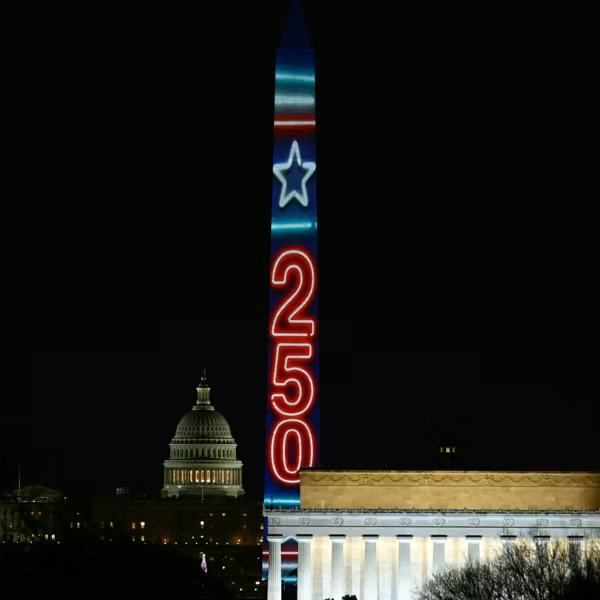On the fifth anniversary of the Supreme Court's Citizens United v. Federal Election Commission decision, which unleashed a scourge of dark money and unlimited corporate spending in U.S. elections, a coalition of reform-minded organizations gathered on Wednesday to promote several key pieces of legislation aimed at countering the influence of big money in politics.
In Washington, D.C., 15 members of Congress joined a diverse set of democracy groups to reintroduce measures including:
- The Democracy for All Amendment, which provides Congress and the states with the authority to determine reasonable regulations on campaign financing and distinguish between natural persons and other artificial entities under campaign finance laws;
- The DISCLOSE Act, which establishes a system of disclosure of campaign spending and the sources of those funds;
- The Sunlight for Unaccountable Nonprofits Act, which makes public the donors who give more than $5,000 to tax-exempt groups that engage in election activities;
- Various proposals geared toward empowering small donors and increasing political participation by matching public funds for small dollar contributions, such as the Government by the People Act, Empowering Citizens Act, and Fair Elections Now Act.
The growing support for such reform measures is reflected in a recently released 'Unity Statement of Principles' (pdf) signed by 130 organizations and endorsing policies that are "already working in many parts of the country to ensure a democracy where everyone participates and everyone's voice is heard; where everyone knows who is buying influence in our elections and government; and where politicians play by common sense rules and are held accountable with enforceable penalties to deter bad behavior."
Meanwhile, a 5th Anniversary rally and forum were planned to take place outside the U.S. Chamber of Commerce, the biggest spender in the 2014 congressional elections among outside groups that do not disclose their contributors. Convened by a laundry list of progressive groups including 350.org, Jobs With Justice, and the Progressive Change Campaign Committee, the forum featured U.S. Rep. Keith Ellison (D-Minn.), Jobs With Justice executive director Sarita Gupta, and Public Citizen president Robert Weissman, speaking on how the problem of big money-fueled elections impact people's daily lives.
Elsewhere, more than 60 events--film screenings, rallies, and protests--would take place around the country.
In Wisconsin, where 54 communities representing more than 2.4 million people have called for a 'We the People' amendment that would clarify for the Supreme Court and all Americans that money is not speech, and therefore, campaign spending can be regulated, the organization Money Out, Voters In (MOVI) held a morning press conference to mark the anniversary.
At the event, Wisconsin State Assemblywoman Lisa Subeck introduced a bill to create an advisory referendum on the November 2016 ballot asking whether Wisconsin's congressional delegation should support, and the Wisconsin Legislature should ratify, an amendment to the U.S. Constitution stating that:
1. Only human beings--not corporations, unions, nonprofit organizations, or similar associations--are endowed with constitutional rights; and
2. Money is not speech, and therefore limiting political contributions and spending is not equivalent to restricting political speech.
"The Supreme Court, in its Citizens United decision, opened the floodgates, and our democracy is drowning," said Matt Rothschild, executive director of the Wisconsin Democracy Campaign. "Here in Wisconsin, we've seen the consequences, as the Koch brothers, and Gogebic Taconite, and the school privatizers are throwing their weight around as never before."
Similarly, in New York, hundreds of activists planned to gather in the state capitol to urge the New York Legislature to make New York the 17th state to call for a constitutional amendment to overturn Citizens United. New York came close last year with a majority of the Assembly and 28 state senators signing a letter to Congress calling for an amendment; so far, 20 local municipalities, representing nearly 10 million people, have voiced their support for an amendment, including New York City, Albany, and Buffalo.
In New Hampshire, a statehouse rally will be followed by the 'Granny D Gala,' named for late Doris Haddock, who walked over 3,200 miles across the continental United States to advocate for campaign finance reform in 1999 and 2000. The gala will feature activist Lawrence Lessig as keynote speaker.
Last week, a set of eight reports were released simultaneously, showing that Citizens United "opened the floodgates to big money influence in our democracy, giving special interests and the wealthy more control over our government and economy than they've enjoyed since the Gilded Age of the late 19th century," as Common Cause phrased it.
Follow the anniversary actions on Twitter:



